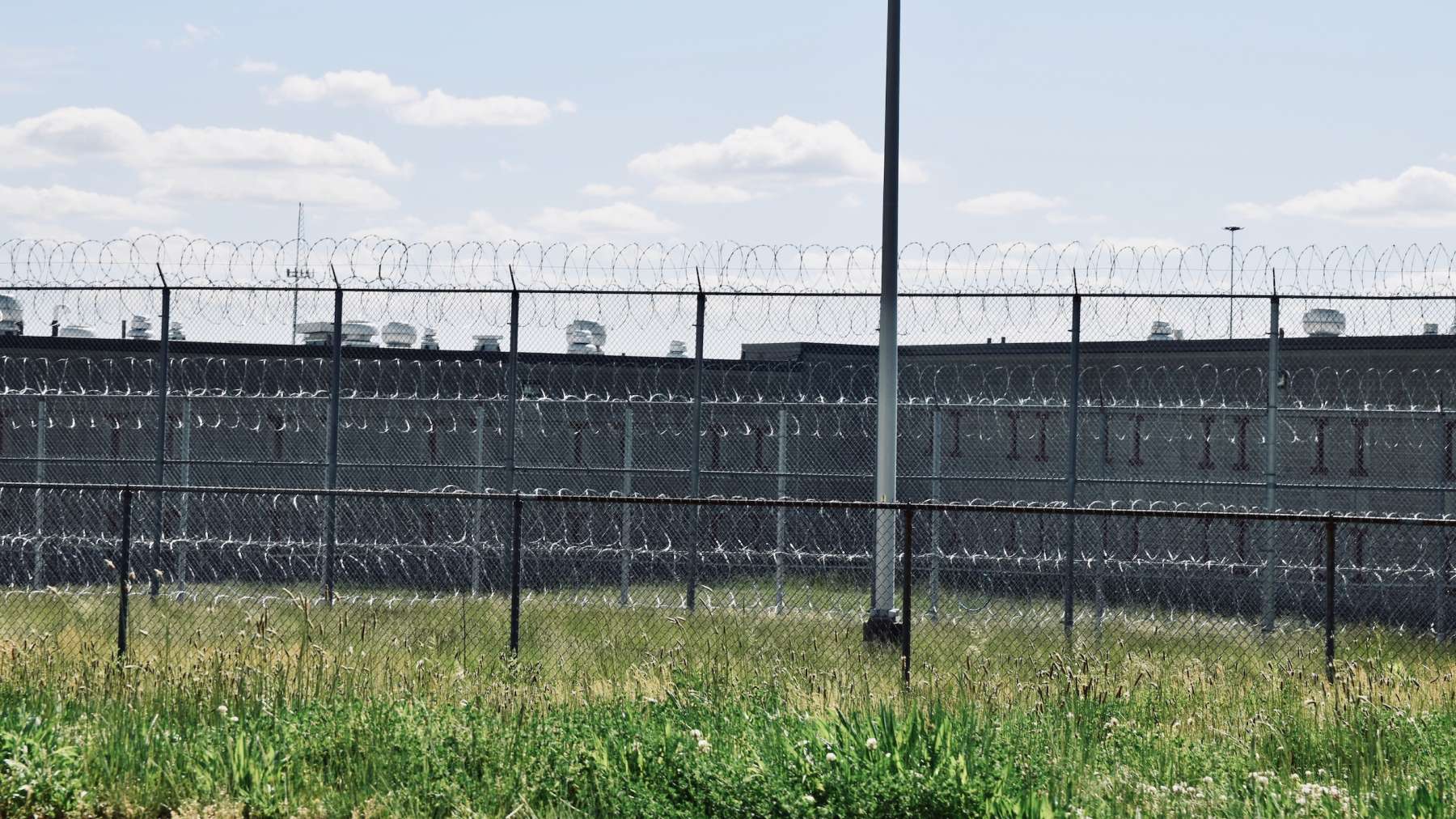During pandemic, RIDOC Director never visited correctional facilities under her supervision
“…I had asked how often she gets into the cellblocks,” said Katherine Molloy, who toured the facilities with Director Coyne-Fage in early May. “She told me that this had been the first time she’s been there in a year.”
June 3, 2021, 11:59 am
By Steve Ahlquist
During her testimony before the Senate Judiciary Committee on a bill to reform the practice of solitary confinement in Rhode Island, Katherine Molloy, a Brown University student living in Providence engaged in the study and research of mass incarceration, said that RIDOC Director Patricia Coyne-Fague told her that she had not visited the correctional facilities under her supervision for a year before conducting a tour for Senator Tiara Mack and others. (2m19s below)
Katherine Molloy, also a campaign intern with Senator Tiara Mack (Democrat, District 6, Providence), accompanied the Senator on a tour of the Adult Correctional Institutions (ACI) medium, maximum and high security facilities in early May of this year.
UpriseRI contacted Katherine Molloy by phone to clarify and expand upon what she said during her testimony.
“During our tour, as the administrators were walking into the cell blocks, they weren’t interacting with incarcerated folks in a positive way,” said Molloy. “There was no ‘Hey, how are you? How’s your day going? I’m Director Coyne-Fague.’ All the correctional officers were saying, ‘We know who’s on our cell blocks. We know if something’s wrong’ and then I see the wardens and the Director failing to even say, ‘Hi.’
“You have to remember, they’re caring for these people. It felt very dehumanizing,” continued Molloy. “I asked, ‘How often are you getting into the facilities’ – and granted, the Director might say she’s in the facilities because she’s working in her office, which is a separate building – but I had asked how often she gets into the cellblocks. She told me that this had been the first time she’s been there in a year.
“I mean, I get it, it’s Covid, you can’t be there every day, it just shows priorities because the Director is showing around Senator Mack and another Representative – That’s her priority. To enter the cellblocks when there’s people to impress – but she won’t take her own time to check in and meet folks that she’s supposed to be caring for,” continued Molloy. “I know that with Covid we’re supposed to give her the benefit of a doubt but every single person in those facilities was at risk. The correctional officers were at risk. And to think that practically 100% of the incarcerated folks [in some facilities] had Covid and they were suffering in there. It seems disingenuous.”
“I’ve been trying to think of an example where one could adequately run an institution or a business and never step foot inside it for over a year,” said UpriseRI.
“You can’t,” said Molloy. “Something I noticed that I felt was concerning was the disconnect between prison administrators, correctional officers and actual incarcerated folks.
“We’ve read in letters that a lot of the folks that are incarcerated don’t even know the wardens or see them, and then they are at their disciplinary hearings and they’re like, this person doesn’t know me,” said Molloy. “A lot of the concerns being brought up by incarcerated people is that they’re having these huge problems, and there’s no way for them to talk to the director. They can tell their correctional officers, and the officers can tell the wardens and the wardens can tell the Director whatever they want, but there’s no line of communication where an incarcerated person can report a bias incident, for example directly to the Director.
“The lack of communication was concerning. If an incarcerated person were to have a problem, would it fairly and effectively reach the Director?”
Rhode Island Department of Corrections (RIDOC) Director Patricia Coyne-Fague was a Governor Gina Raimondo appointee unanimously confirmed by the State Senate in May of 2019. The job pays over $150k a year. She replaced former Director AT Wall, who retired after 38 years of service.
During Covid, it seems that Director Coyne-Fague never visited the facilities themselves, even as infection rates inside some facilities reached nearly 100%. During the pandemic one correctional officer and two incarcerated people died.
Uprise RI reached out to Director Coyne Fague and requested an interview by phone or in person. This was interview request was ignored, and instead, J.R. Ventura, Chief of Information & Public Relations Officer at RIDOC issued a statement.
Here are the questions from UpriseRI:
- Is it possible to run a facility effectively when you haven’t been in that facility in over a year?
- How does one monitor what is going on inside the facility when you are not going inside yourself?
- If you are relying only on reports from people inside as to what is going on inside the facility, how do you verify these reports?
In response, Director Coyne-Fague released the following statement:
“RIDOC’s positive results speak for themselves. We rank among the safest DOCs in the nation, lowest COVID related deaths among inmates – just two – and one of them was because they declined medical intervention and treatment. Among the lowest COVID related staff death with one fatality in the country – we lost one of our own, Lt. Freeman. We were in the national and local media numerous times being lauded as a national model for our efficient response to the pandemic, our vaccination numbers and keeping people safe. The sanitation procedures inside our facilities often exceeds CDC and RIDOH health and disinfecting guidelines. These are facts, not opinion.
“Director Coyne-Fague is at the helm of this extraordinary agency and this extraordinary accomplishment. You will be hard pressed to find a more efficiently run agency. One of the main reasons the Department has had this success is because we listened to medical professionals and followed their guidance, especially when it came to following safety procedures during the pandemic. Testimonies that follow an agenda, ignore the facts and seek to undermine these outstanding results, overall performance and steadfast dedication to safety of the professional men and women who serve in this Department during this pandemic and beyond, are nothing short of shameful and irresponsible. The Director has complete confidence in her team from the top down, which has proven to be warranted given our success in handling this pandemic. Every Rhode Islander can feel proud of the good work being done here and the efficiency with which this Department is run.”
In the statement, Director Coyne-Fague appears to attack Molloy, saying that “Testimonies that follow an agenda, ignore the facts and seek to undermine these outstanding results, overall performance and steadfast dedication to safety of the professional men and women who serve in this Department during this pandemic and beyond, are nothing short of shameful and irresponsible.”
Coyne-Fague seemingly justifies her absence at the facilities by touting the “lowest COVID related deaths among inmates – just two” in the nation. In fact, states with lower overall populations had a lower number of deaths in general, with Rhode Island ranked 46 out of 50, according to the Marshall Project.
When we talk infection rates, Rhode Island correctional facilities ranked 13th in the nation.
The low number of deaths in Rhode Island facilities could be due to attentive medical care, but it could also be that it’s easier to care for a small number of people than it is for states with bigger prison systems, or it could be just luck with a small sample size.

Uprise RI will be collecting reactions to this story for a follow-up.







